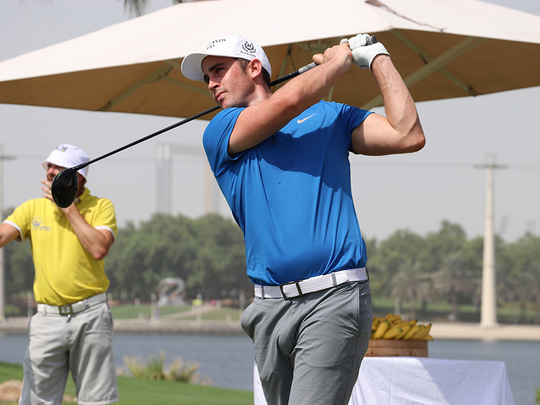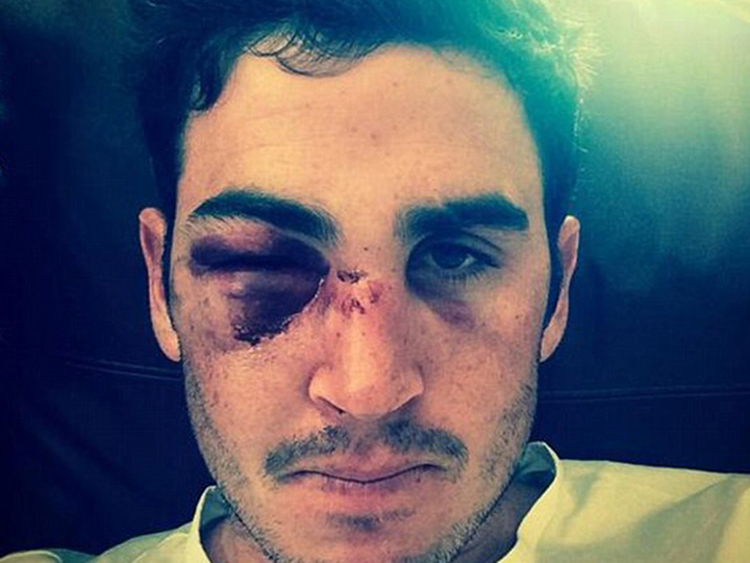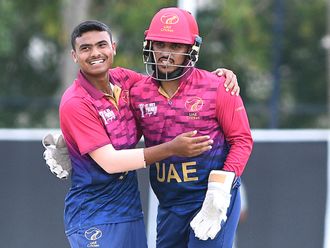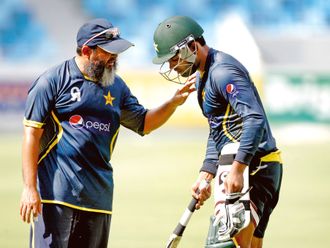
Dubai: When Craig Kieswetter took a bouncer on the face while batting for Somerset against Northamptonshire in a County Championship match back in 2014, he thought his sporting career was over.
It was in cricket at least. The ball had gone through the gap between the grille and the visor of his helmet and broken his nose and eye socket, leaving the wicketkeeper-batsman, who won the Man of the Match in England’s 2010 Twenty20 World Cup win over Australia, with permanently impaired vision.
There was initial hope of a recovery and he was even named in the provisional 2015 World Cup squad. However, as Kieswetter’s sight worsened at dusk, with him unable to see the ball in the glare of the floodlights, he was forced to retire from ODI day-night cricket two years ago at the age of 27.
The South African-born Londoner perhaps could have continued playing county cricket in daylight matches but decided it wasn’t what drove him. Instead, he returned to the second sport he excelled in growing up: golf, and this year he qualified to play on the Mena Golf Tour, becoming one of few athletes to have actually reached a professional level in more than one sport, and that too, perhaps, in record time.
“I played a lot of junior level golf growing up and my old man said why not give it a crack?” Kieswetter told Gulf News. “So, I went out to the US to see David Leadbetter (former coach of Nick Faldo) in Florida, and he said there’s quite a lot to work with. From there it snowballed into turning pro and playing professionally.”
Since finishing tied for 31st in qualifying school in March, he’s gone on to make four cuts in nine appearances this season, his highest finish being a tied-for 38 achieved on Wednesday in the Dubai Creek Open.
“It’s still a bit of a learning curve as first seasons go. It took me 18 months from one sport to another, so it was quite a compact change over. But, my game is definitely good enough. Technically, I could compete with anyone it’s just the experience of playing tournament golf, which is the equivalent of a golfer coming to play cricket, and that just comes with time, so we’ll just see how we go.
“I’ve learnt quite a considerable amount in season one, so in season two, three or four, who knows where I could be? I’d love to get onto the Challenge Tour, Sunshine Tour or European Tour. So, we’ll see how far I can take it and enjoy it while I’m doing it as well.”
Golf, he said, had given him a second chance in sport.
“I’ve walked away very proud of what I’ve achieved in cricket, having been Man of the Match in a World Cup final, no Englishman had ever done that. I was also the second youngest to get a 100 for England, so, there were a lot of positives to take out of that journey.
“I wouldn’t say I have regrets [from having to retire young], but like anything if you win one tournament you want to win five and then 10, it’s the same with all sports, you’ll never get to where you actually dream of being, but you’ll always try and get as close as you realistically can.
“Obviously when it ends it’s sad, like anything when you’ve done it for so long, but being able to get the same motivational drive from golf is equally enjoyable.”
Kieswetter also breeds and trains horses but says that gives him a different kind of satisfaction. “That’s more of a family business and obviously you get that same euphoria when you win and the downs when you don’t, but it’s a different sort of feeling because you are doing it with your family.”
So, does he have a problem with his former career being constantly raked up and compared to his golf? “It doesn’t annoy me at all. It’s just a story and while some find it interesting others might not, but like I say, I’m proud of what I achieved and to have people aware of that is actually quite a nice recognition I suppose.”
On whether he felt cricket was now safer as a result of helmet design changes, he added: “I can only assume so, I’m not in there seeing the helmets, but speaking to the guys now they seem quite comfortable with the changes.
“It’s taken those injuries to have the helmets modified but at the end of the day it’s still a hard piece of leather being thrown at you.
“Guys know the risks having seen the injuries and obviously there was a real tragic one,” he said in reference to Australian batsman Phil Hughes, who died after being hit on the head by a ball in 2014.
“In any professional sport, there’s always going to be injuries. Cricket had the label of being a gentleman’s game, but there is actually a lot of contact, not in a physical human-on-human sense but with a hard piece of leather coming down at you, yes, that’s dangerous and there is a risk.”












